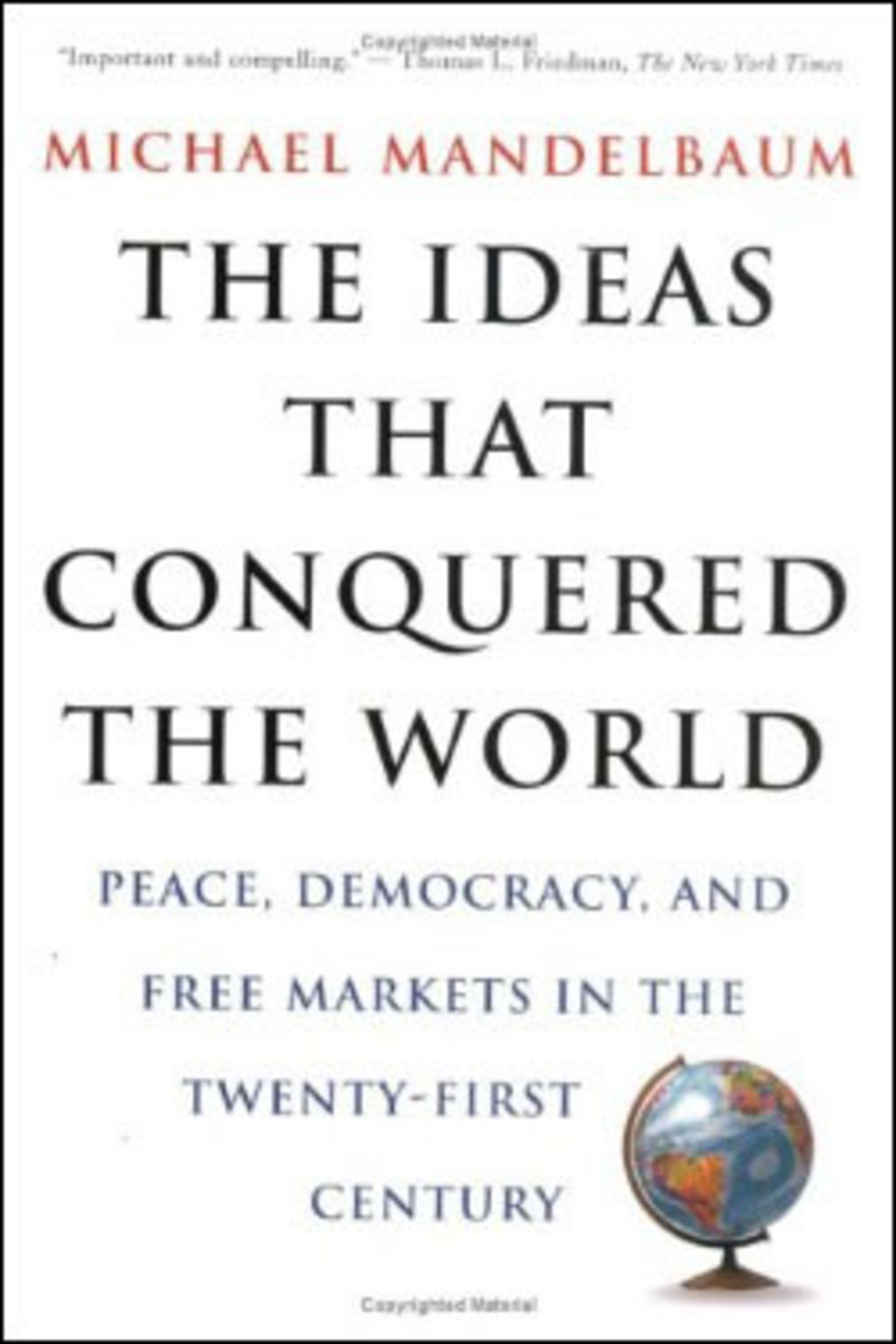The Ideas That Conquered the World
Peace, Democracy, and Free Markets in the Twenty-first Century

- Publisher
- PublicAffairs
- Release Date
- September 2002
- Pages
- 512
- ISBN
- 1586481347
At the dawn of the twenty-first century, three ideas dominate the world: peace as the preferred basis for relations between countries, democracy as the optimal way to organize political life, and free markets as the indispensable vehicle for the creation of wealth. While not practiced everywhere, these ideas have—for the first time in history—no serious rivals as methods for organizing the world’s politics, economics, and international relations.
In this illuminating book, one of America’s leading foreign-policy thinkers, Michael Mandelbaum, describes how the wars and revolutions of the past two centuries brought these ideas to a commanding position worldwide. He then assesses the prospects for these ideas in the years to come, with a particular focus on the United States, which bears the greatest responsibility for protecting and promoting them, and on Russia, China, and the Middle East, where these ideas are not well-established but where their fate will profoundly affect the rest of the world.
One remarkable legacy of the second half of the twentieth century is the decline of major war among the great powers. Something emerged in Europe at the end of the Cold War, Mandelbaum argues, that had eluded the statesmen of previous eras—a formula for peace. He assesses the possibility of applying this formula in East Asia, another region where a major war could take place. He also provides a context for understanding why much of the rest of the world, from the Balkans to Afghanistan, has become less peaceful.
As major wars have declined, the free market has become the most widely accepted institution in human history, and Mandelbaum explains why this happened and how the rise of free markets holds the key to a peaceful and democratic future, while depicting the obstacles to the construction and operation of working markets. His analysis offers an original and compelling picture of the twenty-first-century world, a world remarkably favorable to American values and interests.
Reviews and Endorsements
The Ideas That Conquered the World is the most important work thus far on what’s new and what’s old about the post-Cold War world, about the forces and ideas that will do battle in the future, and it is beautifully written. It shows that history continues with interesting new wrinkles-worrisome and exciting.
Leslie H. Gelb, President, Council on Foreign Relations
Michael Mandelbaums new book, The Ideas That Conquered the World, is illuminating and thought-provoking.
Henry Kissinger
Almost ninety years ago, Woodrow Wilson proclaimed the political triad of peace, democracy, and free markets. How difficult it has been to get there! Nonetheless, the broad global trends of the past century show that humankind has been moving, often kicking and screaming, in this Wilsonian direction. Mandelbaums achievement is to chart that course, and explain the interconnectedness of ideas, politics, and economics. He is not rash enough to assume that the path toward global peace and prosperity will be easier than that in the past. But this intelligent and interesting book gives today’s civic society grounds for hope in our common future.
Paul Kennedy, author of The Rise and Fall of Great Powers
Michael Mandelbaum demonstrates, with extraordinary authority and lucidity, how the liberal ideas first enunciated by Woodrow Wilson have come to decisively shape the world at the beginning of the twenty-first century. These ideas, and not the terrorism of September 11, are the true underpinnings of world politics today.
Francis Fukuyama, author of The End of History and the Last Man
Michael Mandelbaum has stepped back from the crises of the moment to look at the big picture. What he sees is stability, prosperity, and international consensus. As Americans worry about the future, they should read this work of intelligent optimism.
Fareed Zakaria, Newsweek International